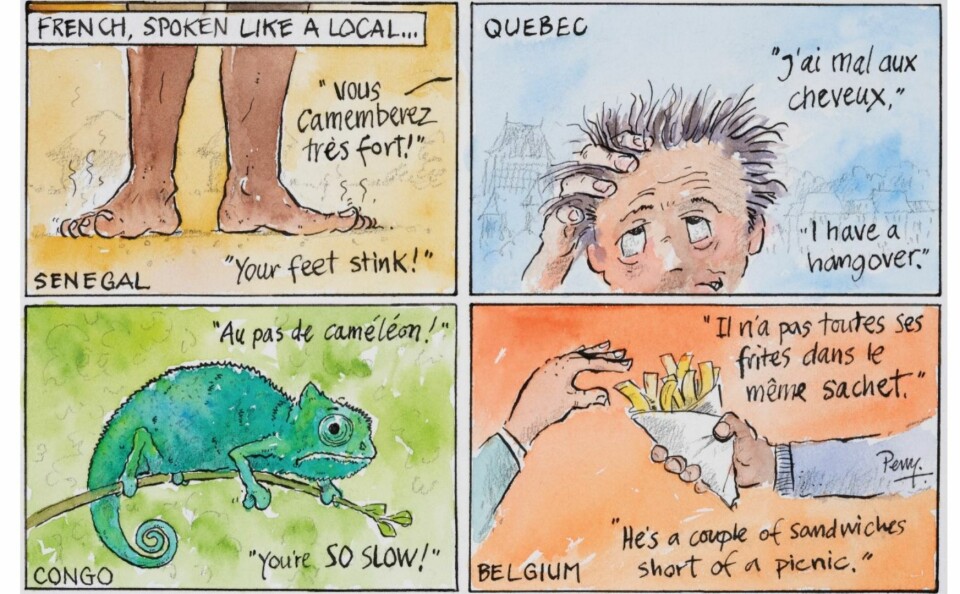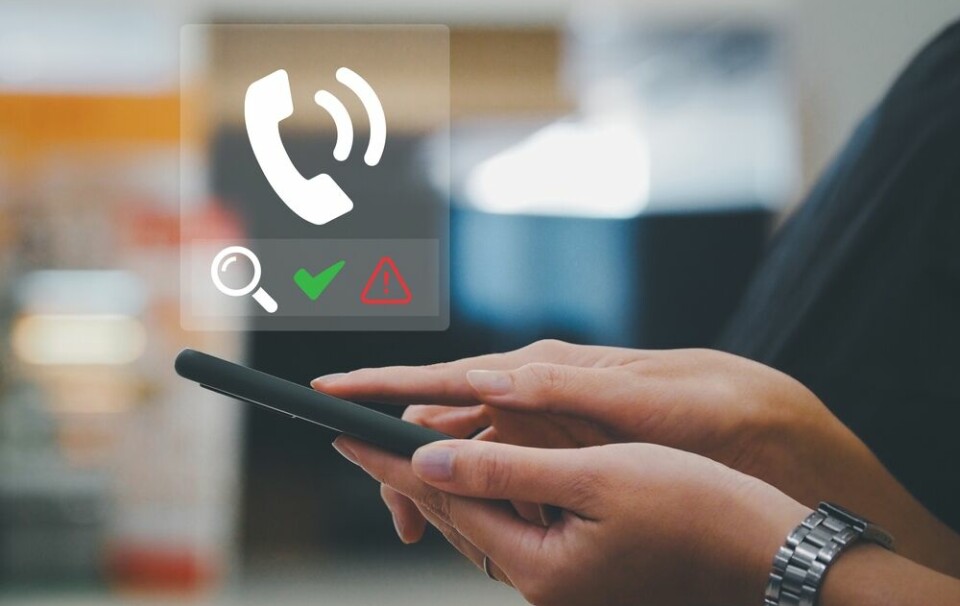-
Mince: a handy French word with several meanings
Use it when expressing frustration and learn how it relates to health habits in January
-
The origins and meaning of tirer les marrons du feu
As Christmas approaches, we look at a phrase to describe someone who takes advantage of a situation
-
Stendhal syndrome: has art ever driven you to distraction?
Discover the condition where art induces intense emotions and even physical reactions
Make sense of La Francophonie
What is the French equivalent of the Commonwealth and why does it include Romania?

Article published March 8, 2023
On March 20, French speakers across the world will celebrate the Journée internationale de la francophonie.
In France, there will be a week of conferences, exhibitions and slam poetry competitions as the country celebrates the language of Molière in all its diversity.
There is a very French difference between Francophonie with a capital F and francophonie with a small f.
Romania, Mexico and Ireland
The former refers to states or regions that have joined the Organisation Internationale de la Francophonie (OIF). The latter refers to any groups of people whose first language is French or who use French regularly in their daily lives.
For example, the 54 fully-fledged OIF members include both Belgium and the Fédération Wallonie-Bruxelles, an authority covering the area where most of the country’s French speakers live.
In most of the member states and regions, French is an official language, or it was in the past, as is the case for Vietnam.
Then there are more surprising inclusions, such as Romania, which gets in because French has historically had a significant cultural influence in the country, with several celebrated Romanian authors writing books in French.
There are also seven associate members and 27 observers, including Mexico, South Korea and Ireland.
Some countries, including Togo and Gabon, are members of both the Francophonie and the Commonwealth, with which one of its founders, Léopold Sédar Senghor liked to compare it, calling it ‘le Commonwealth à la française’.
Read more: Macron lists ‘diverse heroes’ for use in new street names
Francophonie Games a bit like Commonwealth Games
This summer, teams from various corners of the globe will travel to Kinshasa, capital of the Democratic Republic of the Congo, to take part in the Jeux de la Francophonie.
However, unlike the Commonwealth Games, the Francophonie games will probably not get much media coverage, even in France.
They are held every four years, and in previous years, French TV coverage has usually been a 30-second clip on sports round-ups when a French athlete wins.
Just as the Commonwealth Games have British athletes competing for the UK’s separate nations, the Francophonie games see Canada fielding three teams: Quebec, New Brunswick (where French and English have equal status in the provincial legislature) and Canada, representing the rest of the country.
Sports include African wrestling, making the games one of the main international platforms for this sport.
The arts section includes a contest of giant puppets.
Francophonie as an expression of soft power
March 20 marks the OIF’s creation, in 1970, under the name L’Agence de coopération culturelle et technique.
France was initially hesitant, and it was African figures, led by poet and cultural theorist Mr Senghor, then president of Senegal, who drove its creation, which came after France’s post-war process of decolonisation.
With him were president of Niger Hamani Diori, president of Tunisia Habib Bourguiba, and Cambodia’s Norodom Sihanouk.
They saw the OIF as a means of economic and cultural development through cooperation, similar to the UK’s Commonwealth.
Successive French governments have also given support, seeing the Francophonie as an expression of soft power, and the organisation’s headquarters are in Paris.
Throughout its history, though, France has walked a delicate line to avoid claims of neo-colonialism.
There was friction last year, for example, when President Macron was seen to be encouraging the OIF to follow France’s stance against Russia’s war in Ukraine.
Read more: Photo: French-Moroccan comic’s half and half supporter top
Tolerance of dictators criticised
The OIF’s website extols the “added value” that comes from “sharing experiences, good practice and learned lessons”.
Its work includes promoting French, cultural diversity, education and training, democracy, peace and human rights (although a major criticism of the OIF is its tolerance through the years of undemocratic dictators and presidents-for-life), as well as economic cooperation and sustainable development.
The budget for 2023 is €64.6million, with the main contributions coming from member state subscriptions.
Governing structure
Tunisia currently holds its four-year rotating presidency and the secretary general is Louise Mushikiwabo, former Rwandan foreign minister.
France is next in line for the presidency from 2024, which is also when Ms Mushikiwabo’s mandate expires.
The country is then set to host the biennial Francophonie summit, which brings together members’ heads of state and government to discuss major issues of the day.
The OIF’s other governing bodies include an annual conference of ministers, a ‘permanent council’ of ambassadors, and an association representing member parliaments.
In charge of running its programmes is the Agence Universitaire de la Francophonie.
The agency is backed up by organisations for universities, mayors and civil servants, the TV5 Monde TV channel and the French-speaking Senghor University in Alexandria.
DRC moved from American to French influence
The choice of Kinshasa for the 2023 games sheds light on some of the OIF’s history.
When DRC was called Zaire under President Mobutu, the country was very much in the American sphere of influence.
When he was replaced by the Kabilas, father and son, who came from the French-speaking east of the country, the OIF welcomed them as long-lost brothers.
Current president Félix Tshisekedi has kept up the focus on the Francophonie.
French is the fifth largest language in the world, spoken by more than 300 million as a first or second language and France’s President Macron has made promoting the French language around the world a priority.
At the OIF summit in November 2022, however, he expressed concern that “in North African countries, people speak French less than they did 20 or 30 years ago”.
Our thanks to artist Perry Taylor for the main image.
Related articles
Fans celebrate France’s highest-ever score at Eurovision
French president criticised for giving Légion d’honneur to Jeff Bezos
Basque and Corsica languages now included in Google Translate software
























